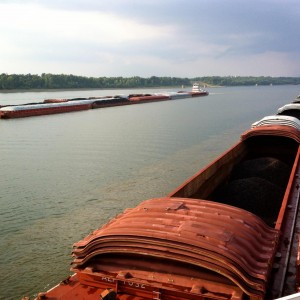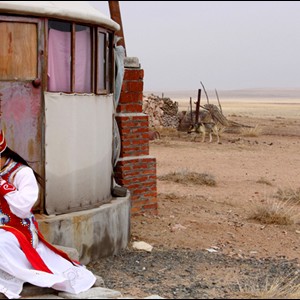Peter Gleick: ‘And During the Wet Years They Lost All Memory of the Dry Years.’
In 1952 John Steinbeck wrote East of Eden, a monumental book about the lives of a community, families, and individuals living in the Salinas Valley of California from the late 1800s through the Great War. The scope of the book is vast, taking on the themes of love and hate, good and evil, the sweep of human emotions, frailties, and strengths, all in the context of a California that no longer exists. And while the book isn’t about water, themes of water flow through it as a metaphor for the cycles of life, drought and flood, and in images of California alternatively parched and quenched. I’ve just had the enormous pleasure of reading it [thank you, Daniel, for the recommendation], and near the very beginning, amidst the grand truths woven through the book is the following prose, as true today as a century ago:
“And it never failed that during the dry years the people forgot about the rich years, and during the wet years they lost all memory of the dry years. It was always that way.”
“It was always that way” about water, and it still is. And if we are to have any hope of changing this cycle of crisis and forgetfulness, we have to start thinking differently.
California has just suffered through three years of drought. Certainly not the first such drought and certainly not the last. And during the drought, we had the opportunity to think differently, to do things differently. But we failed to do so.
Indeed, during the recent drought, California water policy moved badly backward, in large part because of the influential actions of a small set of powerful but narrowly self-interested parties. These groups acted to protect and even expand their own uses of water at the expense of all other uses, human and environmental. This is, indeed, how it has always been in California, so perhaps it shouldn’t be a surprise. But our society is so interconnected now, our populations so large and interwined, and our water resources so constrained, that such narrow self-interests can no longer to be tolerated. They don’t just result in the unfair enrichment of a few; they result in the impoverishment of everyone else. In particular, during the recent dry years, four serious missteps were taken or proposed:
First, we acted as though there was no drought until it was too late and we failed to take steps to reduce our water use by serious efforts to improve efficiency and cut waste, in all sectors.
Second, the narrow ecosystem and environmental protections patched together over the past few decades to right past wrongs were weakened, threatened, or actually overturned in order to keep providing water to users who should have shared their burden of shortage.
Third, major efforts were made to force the expenditure of vast sums of public money for private gain, and in some cases, public water assets were turned over to private control.
Fourth, new public water institutions were proposed, and in some cases actually created, without the public interest at their heart and without the transparency necessary to ensure that our public water resources are managed and used sustainably.
California’s public water institutions are, to be blunt, weak. And they seemed during the drought to be especially weak. Public institutions should serve the public interest, not private interests. In this case, “the public” means, especially, those whose political power is weak: the poor, the politically underrepresented or unrepresented, and the environment itself. Yet during the drought, those institutions backed away from serving the public and chose instead to serve vocal and politically powerful private interests.
There are plenty of things about California water that need fixing. Here is just one:
California water will never be managed sustainably until we bring the state’s groundwater under public management. The physical reality is that our groundwater is no different than our surface water: it is as connected to every other part of our water system as firmly as our muscles are connected to our bones and interwoven with the circulatory systems of our bodies. The political reality is different. We pretend that groundwater is something private, to be managed in the dark, outside of public view. And it is certainly in the interests of some to continue this charade. The legislature must pass, and the next Governor must sign, comprehensive statewide groundwater law. Hard? Unlikely? Sure. But absolutely necessary.
Steinbeck was right. In the dry years we forget about the rich years. And now that we’ve had a wet year, we risk losing all memory of the dry years. The legislature made some substantial progress last year at addressing water policy. That was good. They must continue to do more this year despite the rains, the full reservoirs, and the green fields, and they must — as a first step only — take control of the State’s groundwater by requiring comprehensive monitoring, measurement, and management of all groundwater basins, levels, and use.
We can move on from there.
Peter Gleick
Dr. Gleick’s blog posts are provided in cooperation with the SFGate. Previous posts can be found here.






So, who “controls” groundwater? the one who monitors? pumps it out? there is always a big fight here in cali for water, in dry and wet years and yes, we do remember the dry years we see it comeing two years in advance at times unless there is a late season storm may pull us out some, all this sounds like the right thing to do and we must do really, it just sounds like something more to fight about…….Thank you
Finally, an honest article that doesn’t harp on about global warming, climate change and all that rubbish. It addresses the real issues: a changing climate, dry seasons, wet seasons, and human nature.
The access to, and the supply of fresh, clean water, be it for domestic, agricultural or industrial use is going to be one of the main issues facing mankind in the 21st century. Let’s hope that California can pave the way to the future.